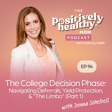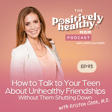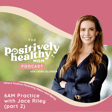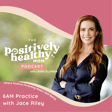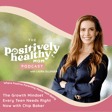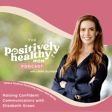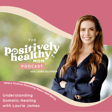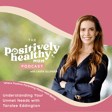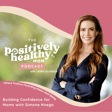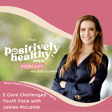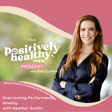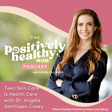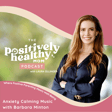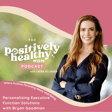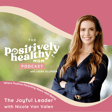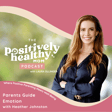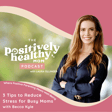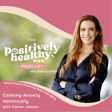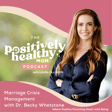
Hormonal Intelligence for Moms and Daughters | The Positively Healthy Mom Podcast with Alyx Coble-Frakes
Welcome to another episode of Positively Healthy Mom! I’m your host, Laura Ollinger—teen and parent well-being coach—and today I’m thrilled to welcome Alyx Coble-Frakes, a wellness entrepreneur, speaker, and the founder of The Agenda., a platform that helps moms align their energy, productivity, and self-care with the rhythm of their menstrual cycles.
In this candid and enlightening conversation, Alyx breaks down how understanding the menstrual cycle is not just about fertility—it’s about functionality. From managing mood shifts to boosting your sales performance, Alyx shares how cycle syncing can change how you show up in motherhood, work, and life.
If you’ve ever felt like your energy, focus, or mood is all over the place—and blamed yourself for it—this episode will shift your entire perspective.
📘 About Alyx Coble-Frakes
Alyx is a leading voice in hormone-informed wellness. As a mom, CEO, and creator of The Agenda., she empowers women to reclaim their energy, confidence, and emotional balance through practical cycle awareness. She’s been featured on NBC, CBS, and USA Today for her work in helping moms thrive—not just survive.
🔗 Connect with Alyx Coble-Frakes
🌐 Website: www.theagendaperiod.com
📸 Instagram: @theagendaperiod
📘 Facebook: The Agenda. Community
💼 LinkedIn: Alyx Coble-Frakes
🎯 Ideal Listener
This episode is for busy moms (30s–50s) who are tired of the burnout cycle and ready to learn how their biology can support their lives—not work against it.
💬 Topics in This Episode
• Why your cycle is your superpower
• The surprising connection between ovulation and sales success
• The four inner “seasons” of your menstrual cycle
• What moms need to know about estrogen, serotonin, and mood
• How to track your cycle and use it for emotional & physical regulation
• Self-care strategies that match each phase of your month
• Why PMS isn’t a personal failure—and what your body is trying to say
• Cycle syncing tips for parenting, marriage, business, and energy management
🔗 Connect with us: Website: positivelyhealthycoaching.com Podcast: positivelyhealthycoaching.com/podcast
YouTube: @positivelyhealthycoaching
Facebook Group: The Positively Healthy Mom
Instagram: @positivelyhealthycoaching
#PositivelyHealthyMom #TheAgendaPeriod #FranchiseIncome #WomenInBusiness #CycleAlignment #EntrepreneurMom #AlyxCobleFrakes #HormonalIntelligence #WomenEmpowerment #BusinessForMoms #FranchiseOpportunity #CommissionStructure #PodcastForMoms
